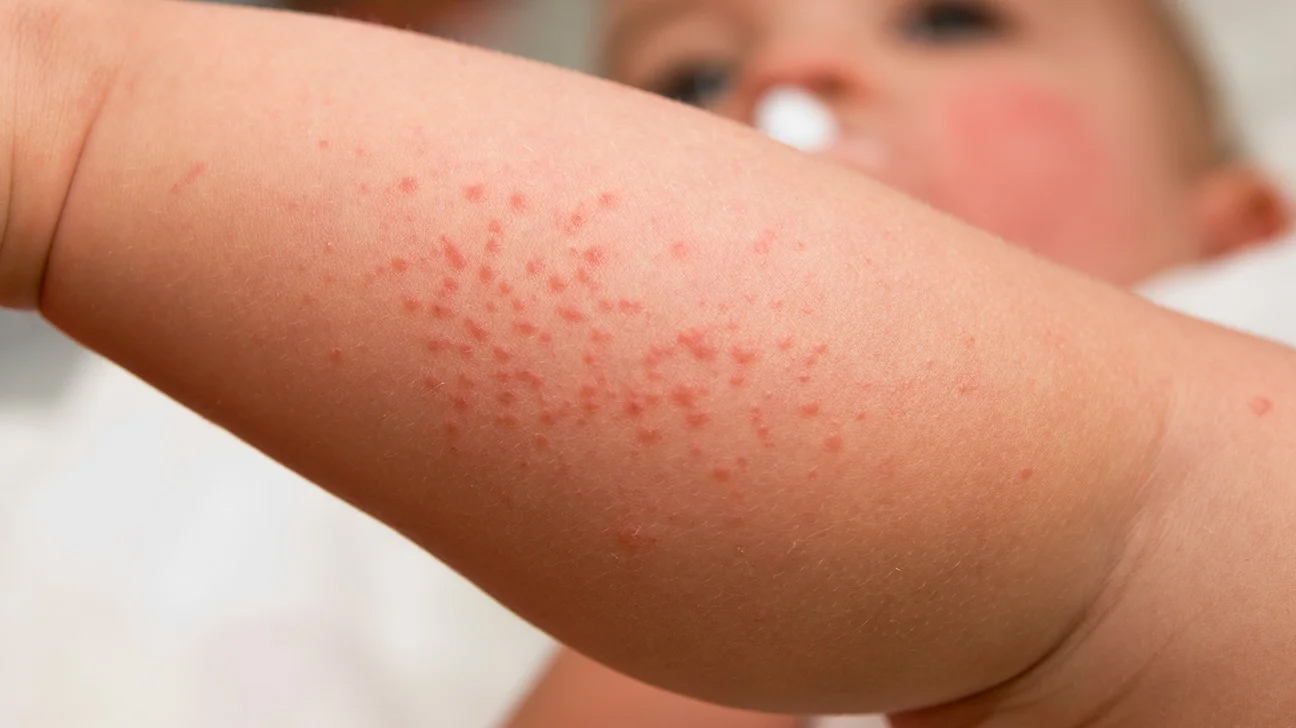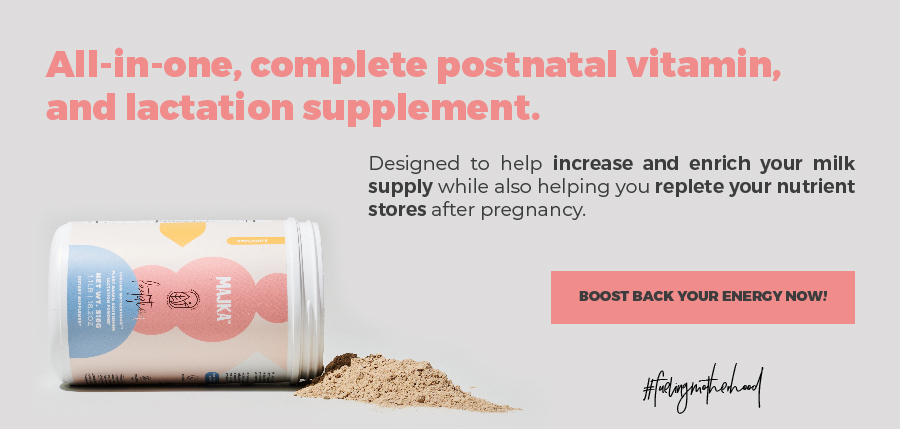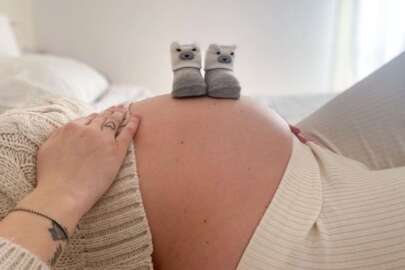
If your baby is having an abnormal response to a certain food it could be a sign of a food allergy. In this article, we will tell you about how it can affect your baby and what you can do to help.
What are the most common food allergies?
First of all, it’s important to mention that a food allergy isn’t the same as a food intolerance. However, they can have similar or even some of the same symptoms.
A food allergy causes the immune system to respond with symptoms that could range from mild to dangerous depending on the case.A food intolerance, on the other hand, does not affect the immune system.
Some of the most common food allergies are milk, eggs, wheat, soy, tree nuts, peanuts, fish, and shellfish. This doesn’t mean that your baby will develop an allergy to these foods or that he/she will not develop a different one. Having a food allergy as a child doesn’t necessarily mean that you will carry it into adulthood. However, tree nuts, peanuts, fish, and shellfish tend to do so.
How can I know if my baby has a food allergy?
Can they be hereditary?
There is in fact a genetic predisposition when it comes to allergies:
- 12% of children with no family history of allergy develop an allergy.
- 30% to 50% of kids with a single parental allergy history develop an allergy.
- 60% to 80% of children with biparental allergies develop allergic disease.
Even so, exposure to environmental factors has a great impact in development of allergies. It’s also easier for an immature cellular immune system to develop an allergy. Precautionary measures can decrease the risk of developing an allergy, if done correctly in the first years of life.
In order to know if your baby has a food allergy, it is important to be aware of signs/symptoms of an allergic reaction, such as: sneezing, a runny or blocked nose, red eyes, itchy or watery eyes, wheezing and coughing, a red or itchy rash, diarrhea, vomiting, or blood in stool. These reactions can happen directly after ingestion of a certain food (it can be through breastmilk). An allergic reaction can also occur in a range of minutes to an hour afterwards.
*Keep in mind that every person is different. If you see any signs that suggest your baby may have an allergic reaction, let your healthcare provider know.
How does a food allergy test work?
Allergy tests aren’t always 100% accurate, and tend to be less accurate in young children. Even so, it is a good way to assess what your children may be passing through while eating, (which can ultimately prevent a severe reaction.)
There are different types of food allergy tests:
- Allergy blood test: a small vial of blood will be taken to measure levels of Immunoglobulin E antibodies ( the body produces in response to an allergen.)
- Allergy skin test: the healthcare provider uses a thin needle to prick the skin on the forearm or back with potential allergens. If the skin shows redness or a rash, an allergy is detected. This isn’t usually used at 6 months of age or younger.
- Elimination diet: the baby discontinues its current diet, and the reaction goes away.
- Food challenge test: a child is introduced to foods in a medical facility where he/she is monitored by medical staff (immediate treatment is prepared in case of a reaction.
What is the treatment for a food allergy?
There aren’t any medications that will treat a food allergy. If your baby has an allergy, you need to avoid the foods that he/she is allergic to, whether it be given to your baby directly or through breastfeeding (small amounts can be transmitted through your milk). Also, if you find that formula is making your child have an allergic reaction, talk to your doctor to find the right formula for him/her.
An important thing to mention is that having an allergy could prevent your baby from eating foods containing certain vitamins or minerals he/she needs. Talk to your healthcare provider when deciding how to provide your baby with all the nutrients that he/she needs.
*Your doctor may recommend giving certain foods to outgrow the allergy, but this should always be guided by a professional.
How long does an allergic reaction last?
An allergic reaction may not always look the same, so we cannot say how long it will last. It is important to keep in mind that if your baby is showing a severe reaction such as: difficulty breathing, swallowing, showing weak pulse or anything that concerns you, it is important to get medical help right away.
If your baby has a food allergy that has dangerous reactions, your doctor may prescribe an epinephrine shot to keep at home in case this happens.
In Breastfeeding 101, we hope this article helps you to know more about food allergies and what to do about it. We invite you to follow all of our content to learn more about your baby’s health.
In the following, we share with you some sources that made this article possible so you can deepen more on this topic:
Allergies in children | National Library of Medicine
ASCIA Guidelines – Infant Feeding and Allergy Prevention I ASCIA
Babies can acquire allergies from their mothers in the womb I News Medicals Life Science
Breastfeeding a Baby With Food Allergies I Children´s Hospital of Philadelphia
Children and Allergies I American College of allergies, asthma and Immunology
EAACI guideline: Preventing the development of food allergy in infants and young children (2020 update) I Wiley Online Library
First Aid: Allergic Reactions | KidsHealth
Food allergies in babies and young children I NHS
Food Allergies in Children I Johns Hopkins Medicine
Food Allergy Tests for Kids: What You Need To Know I Cleveland Clinic
Learn first aid for a baby or child who is having a severe allergic reaction (anaphylaxis) | BritishRedCross
Mothers pass on allergies to offspring I ScienceNews
The Impact of Family History of Allergy on Risk of Food Allergy: A Population-Based Study of Infants I National Library of Medicine
What to do if a baby has an allergic reaction I Medical News Today
Avery Reckers





